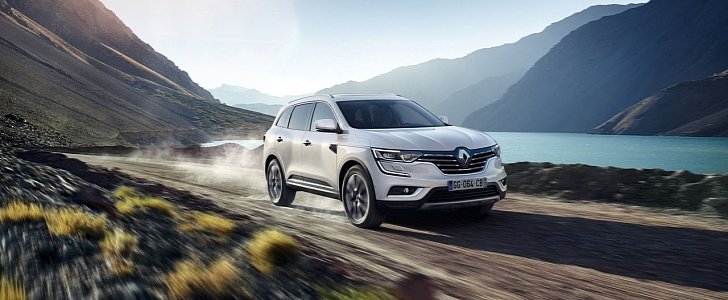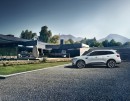It's a well-known fact that Europe is the place where diesel engines thrive regardless of the type of vehicle we're talking about. You'll find three-cylinder compression-ignition engines in vehicles so small, you could be fooled into thinking they were pedal cars.
Before the scandal, it was Volkswagen's TDIs that had stolen the show in the mainstream segment, but other manufacturers were making very good power plants of their own. PSA's (Peugeot & Citroen) 1.6-liter HDi unit is one competent example, but so is Renault's 1.5-liter dCi. Even though it has been replaced for some years by a larger 1.6-liter version, the 1.5 can still be found in some models, especially those coming from subsidiary brand Dacia.
What the 1.5-liter dCi engine lacked in refinement, it more than made up in its feeble fuel appetite. The engine rattled like a pan full of pebble, but everything was forgiven when it constantly returned over 60 miles per gallon (under 4 l/100 km). However, more recent understandings of how diesel engines work - and, more to the point, the components of their exhaust fumes - have convinced authorities to enforce stricter limitations for this particular type of engine.
Some had to use defeat devices even before these new regulations came into effect, but others are starting to think very seriously about how they're going to cope with the real-world testing and the low emissions standards. And the simple conclusion is that they can't.
According to the BBC, Renault is acknowledging diesel engines might phase out, and that has got to be a difficult thing to admit for a manufacturer that has been investing heavily in the technology. Still, Renault-Nissan isn't sitting too badly as far as electric cars go either, so that might make the transition easier for them.
It will be a while before we see anything else power large SUVs that don't have anything to do with sportiness, so diesel pumps won't just disappear overnight from all gas stations in Europe, but a decline is inevitable. In fact, it has already started with 2015 being the first year when diesel car sales in Europe haven't been going up.
The fact that the automotive industry needs to find an alternative to this heavy-polluting fuel isn't news in itself, but having one of Europe's major car makers admit it, that's very important. Together with Volkswagen's newly found love for electric cars, it shows these companies have got the message. It's not like they're trying to do the good thing all of a sudden - no, they're still out there for profit or at least staying alive - but at the end of the day, it's all the same to us.
What the 1.5-liter dCi engine lacked in refinement, it more than made up in its feeble fuel appetite. The engine rattled like a pan full of pebble, but everything was forgiven when it constantly returned over 60 miles per gallon (under 4 l/100 km). However, more recent understandings of how diesel engines work - and, more to the point, the components of their exhaust fumes - have convinced authorities to enforce stricter limitations for this particular type of engine.
Some had to use defeat devices even before these new regulations came into effect, but others are starting to think very seriously about how they're going to cope with the real-world testing and the low emissions standards. And the simple conclusion is that they can't.
According to the BBC, Renault is acknowledging diesel engines might phase out, and that has got to be a difficult thing to admit for a manufacturer that has been investing heavily in the technology. Still, Renault-Nissan isn't sitting too badly as far as electric cars go either, so that might make the transition easier for them.
It will be a while before we see anything else power large SUVs that don't have anything to do with sportiness, so diesel pumps won't just disappear overnight from all gas stations in Europe, but a decline is inevitable. In fact, it has already started with 2015 being the first year when diesel car sales in Europe haven't been going up.
The fact that the automotive industry needs to find an alternative to this heavy-polluting fuel isn't news in itself, but having one of Europe's major car makers admit it, that's very important. Together with Volkswagen's newly found love for electric cars, it shows these companies have got the message. It's not like they're trying to do the good thing all of a sudden - no, they're still out there for profit or at least staying alive - but at the end of the day, it's all the same to us.



















